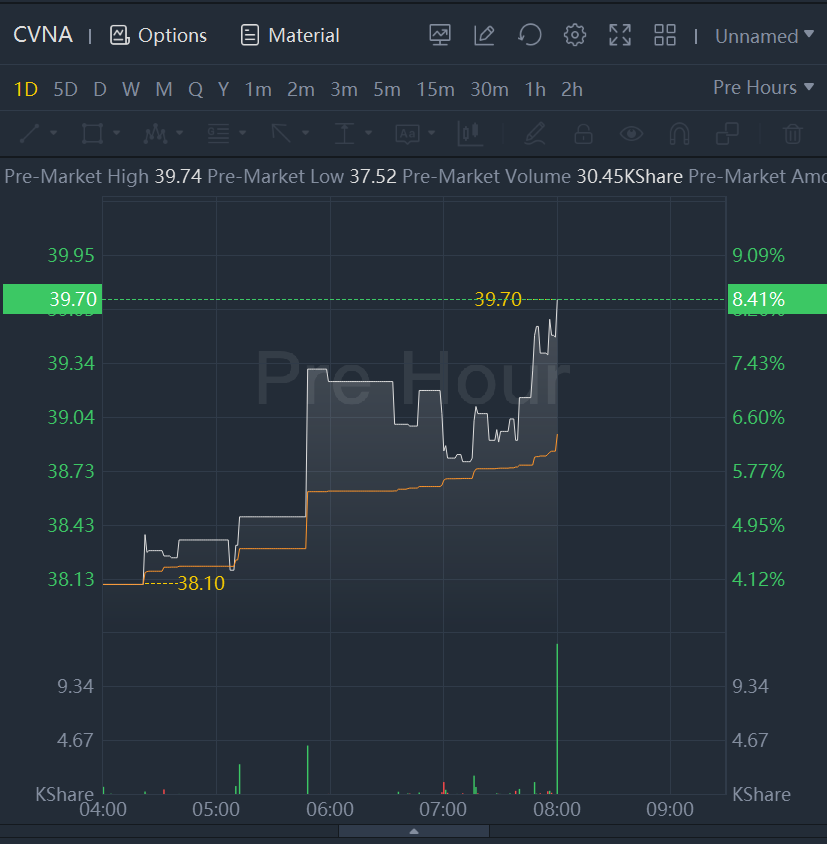Shares of Carvana Co. were up 8% in premarket trading Monday after a Piper Sandler analyst turned bullish on the stock, writing that "many realistic scenarios" suggest the name is "grossly undervalued" despite declines in used-car prices.
"Before we get to the punchline, please note that yes, we are aware that used vehicle prices are falling," Piper Sandler's Alexander Potter wrote. "We know that rising interest rates are a risk, and we know that bankruptcy is a real possibility."
That said, he also noted that Carvana shares (CVNA) are a tenth as valuable as they were a year back, and while the company faces an "array of possible outcomes," many of those "imply substantial upside."
Carvana shares "could easily continue falling, but with so much potential upside, we think investors should consider owning at least some CVNA," he continued, as he upgraded Carvana's stock to overweight from neutral, while cutting his price target to $73 from $98.
In Potter's view, Carvana isn't necessarily as complex a business as some on Wall Street might think.
"In order to stay informed, investors often feel obliged to study outside-the-box data sets (e.g. securitization filings, used vehicle pricing indices, web-scraping results, etc.)," Potter wrote. But he sees Carvana as a "simple business" at its foundation, as the company's value can be boiled down to its share of the market used cars and its profitability.
When looking at those factors and making assumptions about tax rates, capital efficiency, and weighted average cost of capital, Potter's analysis of Carvana suggests "reason for optimism."
He acknowledged that the company faces risk, including related to its acquisition of Adesa's physical auction business, which he says can broaden Carvana's capacity, though the company had to accept "onerous" financing terms due to the market climate.
"Some investors may rightly note that long-term potential is meaningless if CVNA cannot survive the coming quarters," he wrote. "Due to deteriorating market conditions and a hefty debt burden, there are definitely some scenarios that imply fair equity value of $0/share."
The company's "predicament" relates to the Adesa deal because Carvana financed it "using a $3.275 billion junk bond carrying a 10.25% interest rate," he continued.
Shares of Carvana are up 66% over the past three months, though they're down 84% so far this year. The S&P 500 has gained 4% over a three-month span but is off 15% on a year-to-date basis.

